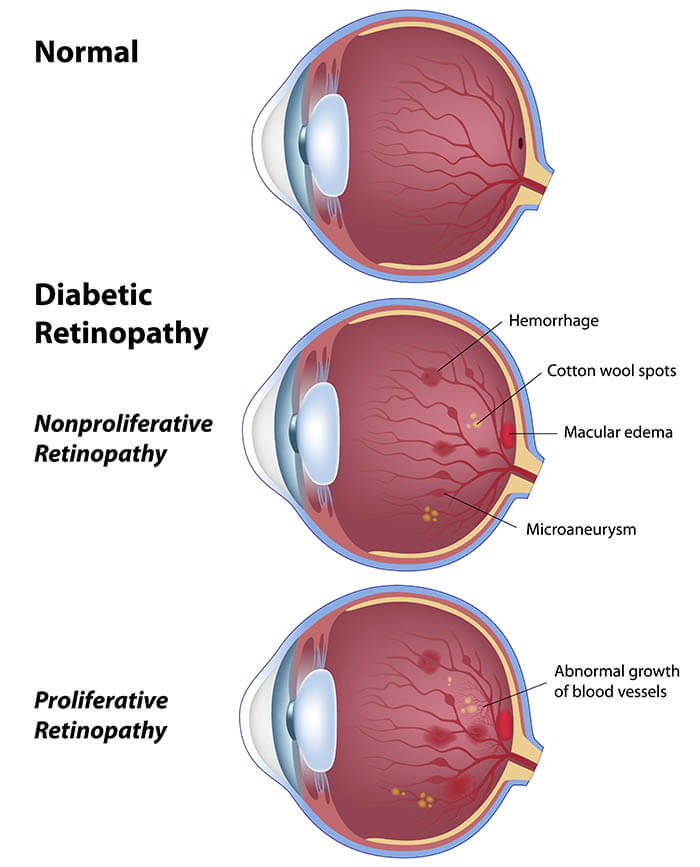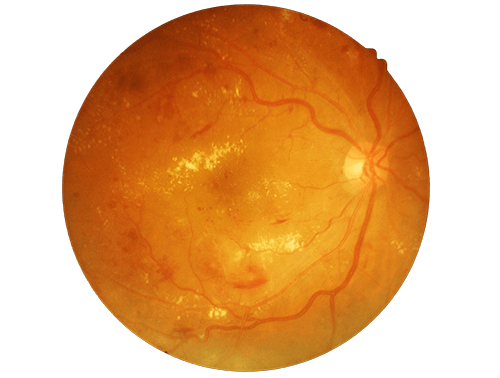
Diabetes is a disease that keeps your body from being able to monitor and control its blood sugar levels. This can cause your blood sugar levels to drastically rise and fall.
Anyone with Type 1 or Type 2 diabetes can develop diabetic retinopathy. It is important to manage your blood sugar to avoid developing this condition. The longer a person has diabetes, the greater the chances of him or her developing diabetic retinopathy. In fact, almost 80% of people who have diabetes for 15 years or more develop some damage to the blood vessels in their retina.
When diabetes is unmonitored or untreated, high blood sugar levels can cause irreparable damage to tiny blood vessels in the eye. Diabetic retinopathy causes damage to the retina when blood vessels that support the eye become damaged. When this happens, the eye tries to grow new blood vessels to make up for the damaged ones. As a result, these new blood vessels do not develop properly and they aren’t as strong. The new blood vessels can cause blood and other fluids to leak into the eye. As you probably know, anything leaking in your eye is not good! When the blood vessels leak, it can cause your vision to become cloudy or blurred. This damage is known as diabetic retinopathy.
Like all eye-related diseases, this should not go without treatment from your eye doctor. If left untreated, it can lead to blindness.
So, what should you be looking out for?
However, sometimes a person can suffer from diabetic retinopathy without showing any symptoms — that’s why it is incredibly important to maintain regular dilated eye exams. Prevention, early detection, and treatment are key when it comes to diabetic retinopathy.

McFarland Eye Care is here to help you heal and restore your vision. Choose from any of our locations.

The key to effective management of diabetic retinopathy is early detection and consistent monitoring. An annual diabetic eye exam is crucial to detecting the disease and preventing any future vision loss.
All of our doctors are experienced in diabetic retinopathy management.
Treatment will depend upon the stage of the disease. Our doctors will work with you to determine the best course of treatment for your vision. We offer three different treatment options: